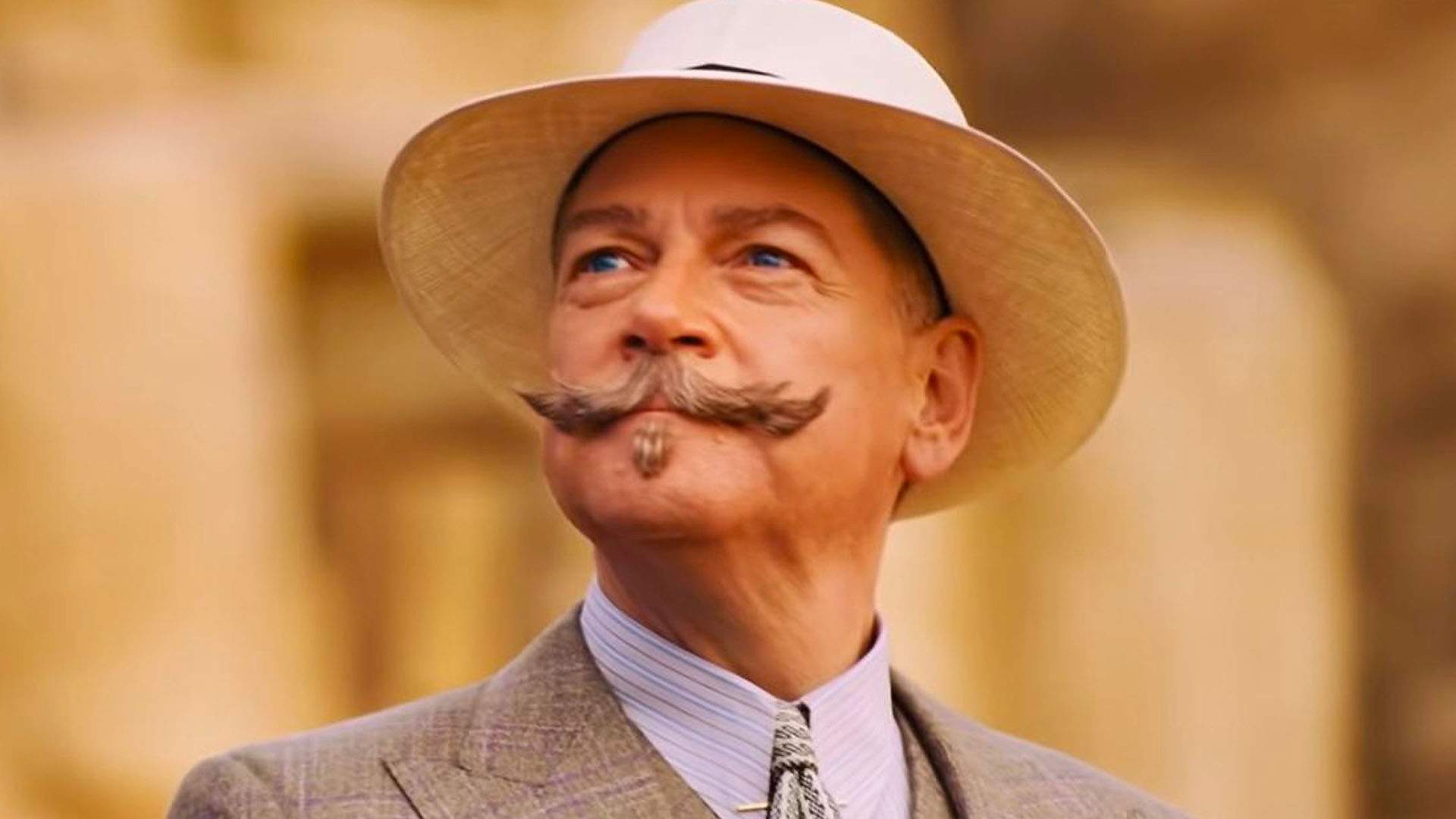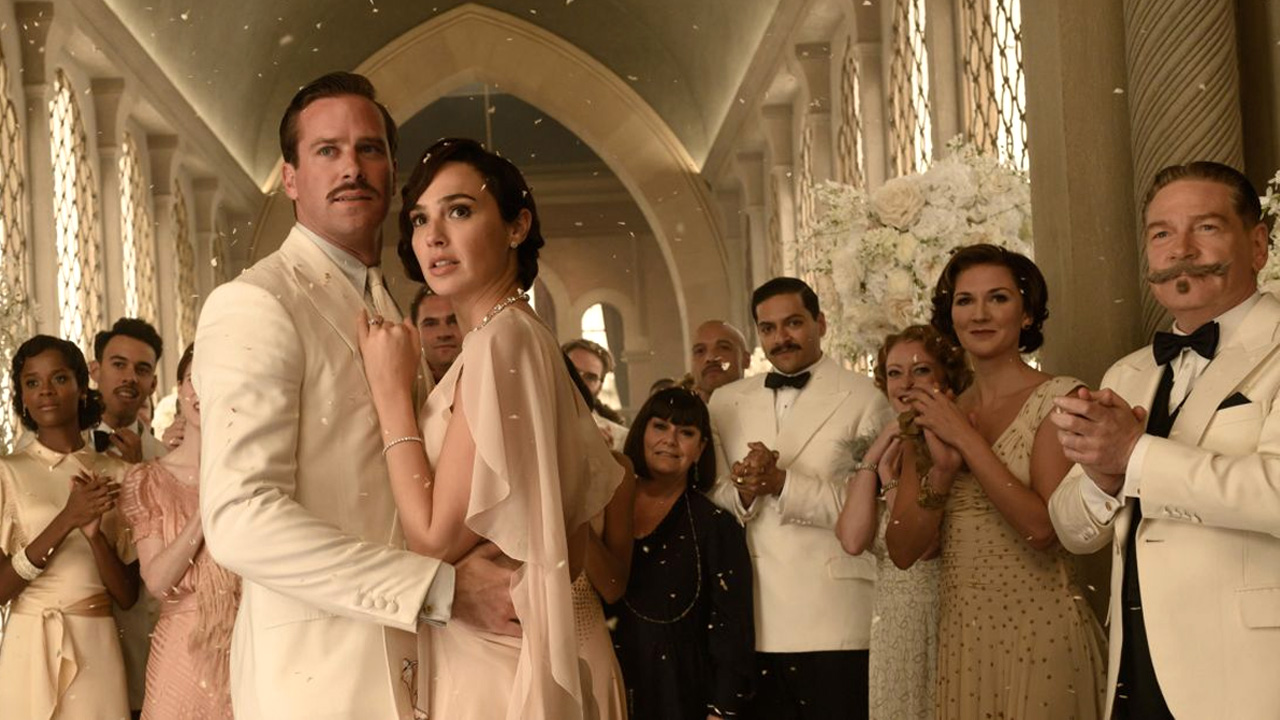Unsatisfying storytelling holds back Branagh’s entertaining Death on the Nile

Hot off the heels from many Oscar nominations for Belfast, filmmaker Sir Kenneth Branagh follows up his hit 2017 Agatha Christie adaptation with Death on the Nile. While he found lots to praise, Liam Maguren left the film deeply unsatisfied.
Death on the Nile (2022)
To cut a medium review short, fans of Sir Kenneth Branagh’s 2017 take on Agatha Christie’s Murder on the Orient Express will most likely enjoy his version of Death on the Nile. So at least he’s consistent. However, anyone hoping Branagh and his team would improve on the investigative side of the storytelling might end up feeling played.
It was always strange to me that they kicked off Branagh’s Hercule Poirot series with the relatively subversive Orient Express, as Nile‘s more traditional whodunnit plotting seemed like a better basis for a first film. This one involves the murder of an extremely wealthy heiress Linnet Ridgeway (Gal Gadot, taking her star power to the galaxy here) aboard a luxury cruise.
The suspects are ready for a Cluedo board. These include Linnet’s groom Simon (Armie Hammer), the groom’s jilted ex Jacqueline (Emma Mackey), the late bride’s jilted ex Windlesham (Russell Brand), the late bride’s will-handler Katchadourian (Ali Fazal), Linnet’s personal maid Louise (Rose Leslie), mother-daughter musicians Rosalie and Salome (Letitia Wright and Sophie Okonedo), kite enthusiast Bouc (Tom Bateman), his pessimistic mother Euphemia (Annette Bening), and French & Saunders (Dawn French and Jennifer Saunders).
Then, of course, there’s the effortlessly watchable Branagh as Hercule Poirot, the self-anointed Best Detective Ever who has to comb through this entangled troupe of characters and pluck our a murderer. But not before combing his co-star, The ‘Stache, which gets its own black-n-white WWI origin story here. I’m not kidding.
Staying true to his thespian background, Branagh gets the most out of his performers. Mackey glares molten hot envy every chance she gets. Brand’s surprisingly subdued performance registers as a man attempting to squeeze dignity through the slim fissure of a broken heart. Okonedo’s flirty singer is a joy to behold when paired with the bashful Poirot.

If word count allowed, I could go on about the whole key cast. There’s not a weak link among them, and to Nile‘s credit, it does a better job than Orient Express distributing screen time among them. While each interview/grilling from Poirot helps thicken the plot, it’s also entertaining watching these different people freak out when their heads are near the hot plate.
But while it’s all good and well to have the characters figured out, it means little if the plot’s out of hand. Unfortunately, just like Orient Express, this is Nile‘s biggest crime.
Whether it’s due to Michael Green’s script or Branagh’s treatment of it, the conclusion denies the viewer the satisfaction of seeing the clues come together convincingly. In many instances, key evidence is either barely mentioned or not mentioned at all until Poirot’s final monologue. This seems especially odd given the film’s willingness earlier to foreshadow one big giveaway, the equivalent to Chekov asking why his gun is smoking.
It’s the broken backbone of a gorgeous production, filled with sumptuous sets that overcome some ropey CG environments and lavish costuming capable of an Oscar nomination had it released a month earlier. Cinematographer Haris Zambarloukos continues to make this series pop with stunning use of mirrors and slanted glass conveying the confusion and chaos of interrogations.
Unfortunately, any praise of the cinematic beauty of an unsatisfying Agatha Christie adaptation feels a bit like praising one of Poirot’s beloved desserts for simply looking delicious – visuals alone do not stop me from wanting a proper one.



















